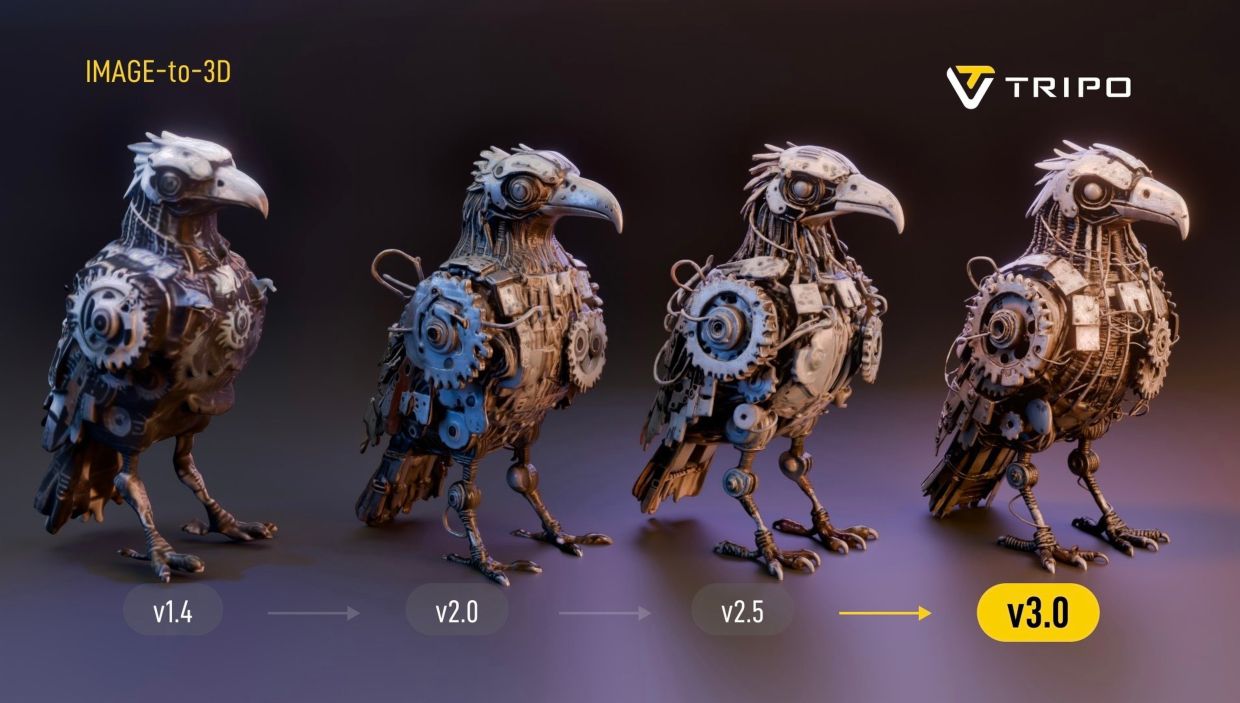Chinese AI start-up Vast aims to take on global tech giants such as Tencent Holdings and Google in developing 3D AI models, which allow creators to generate three-dimensional visual content with text or image inputs, an increasingly competitive field that has seen the entrance of influential players such as AI pioneer Li Fei-fei.
Beijing-based Vast, established in 2023, aims “to let everyone create 3D content with zero barriers and zero cost”, and potentially create a TikTok-like platform for user-generated 3D content, founder and CEO Simon Song Yachen, previously a co-founder of Chinese AI unicorn MiniMax, said in an interview last week.
The company, with more than 100 employees in Beijing and Hangzhou, operates an AI 3D generation platform called Tripo Studio, and last week released the latest version, the Tripo 3.0 model, which offers its “most accurate, detail-rich geometry yet”, the company said.
“For AI 3D large models, we are the leader in the world. I think there’s consensus in that,” said 28-year-old Song, who worked in the CEO’s office of Chinese AI pioneer SenseTime before co-founding Minimax.
Song founded Vast shortly after Google’s 2022 launch of the text-to-3D model DreamFusion, which he said had made 3D content generation possible. The nascent field is shaping up to be the latest frontier in AI competition as companies try to appeal to professional creators in the game and film industries, as well as individual artists.

Chinese social media and gaming giant Tencent in March made five of its early Hunyuan 3D models open source, and last month released and open-sourced its Hunyuan 3D world model 1.0, which it said could generate a 3D virtual world with a line of text or an image within minutes, a process that used to take weeks for a professional modelling team to build.
Chinese-American computer scientist Fei-Fei Li, hailed as the Godmother of AI for her work in computer vision, last year raised US$230mil (RM972.32mil) for her start-up World Labs, which also builds 3D “large world models”.
In June, Vast raised “tens of millions of US dollars” from investors including the government-run Beijing Artificial Intelligence Industry Investment Fund, and it received backing from Chinese venture capital funds such as Vitalbridge and Fortune Capital in previous rounds.
Song declined to reveal its current valuation, but said that the company was in the process of raising a fourth round of funding.
Vast saw its revenue jump 150% to nearly US$600,000 (RM2.53mil) in June after the launch of its Tripo Studio platform, he said.
The platform currently had around three million professional creators, about 80% of whom were based outside China, with Europe and the US being its biggest markets, Song said. Creators used it for digital content such as games, animation or film visual effects, or to design physical products including shoes, furniture or action figures, he said.
Vast also had about 40,000 enterprise customers accessing its models through application programming interfaces, including major companies such as Tencent, NetEase, ByteDance, Microsoft, Sony and Popmart, according to Song.
The founder shrugged off the impact of the lack of cutting-edge AI processors China faces because of US export controls, only saying that computing power in China was much cheaper than in the US.
The computing power required for the training and inference of 3D large models was also less intense than that demanded by large language models, he said.
The company planned to expand to the consumer market later on with a freely available platform for user-generated 3D content, but that would not happen for at least two to three years, Song said. – South China Morning Post






